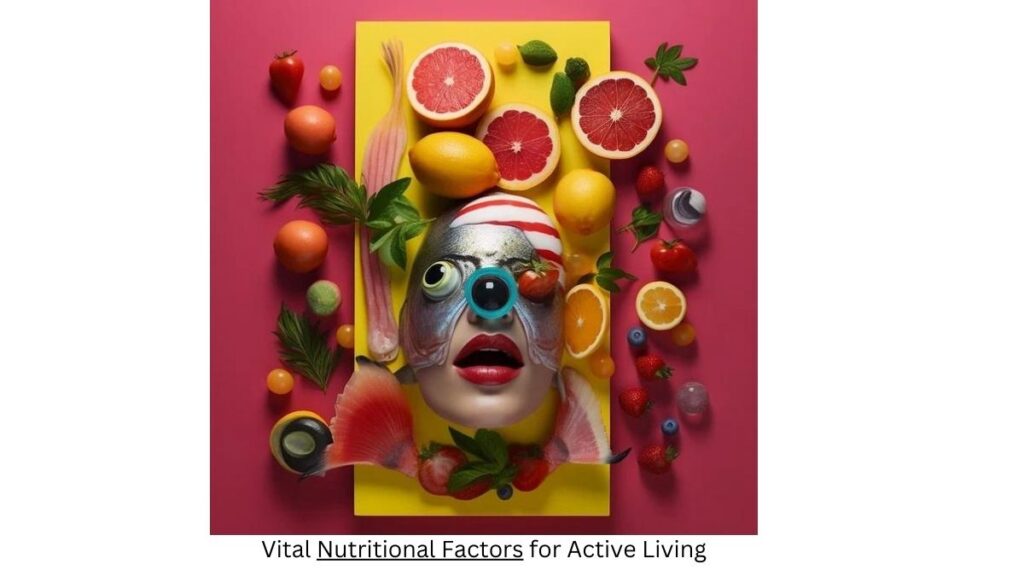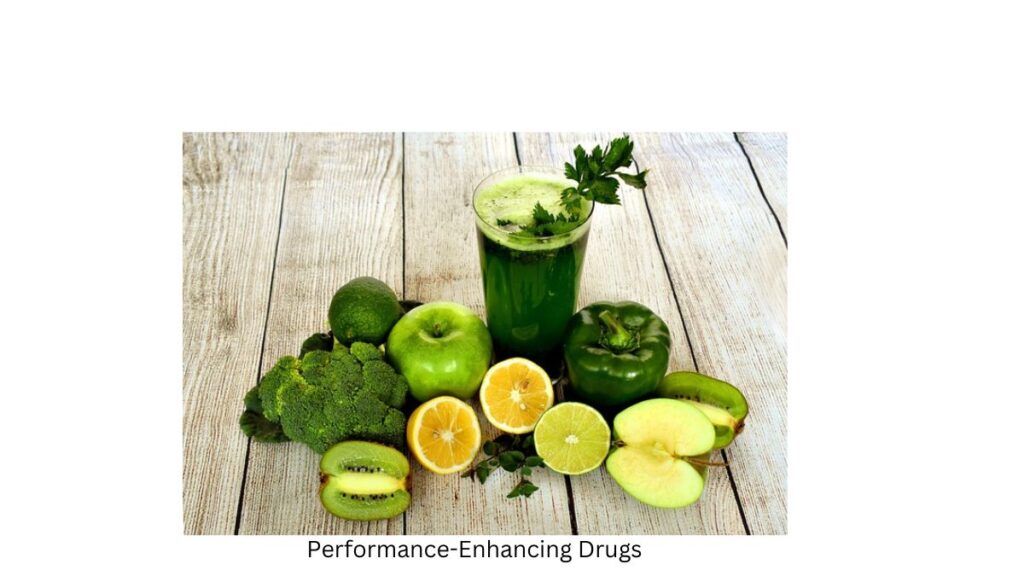Introduction: –

Athlete’s Diet: Vital Nutritional Factors for Active Living
In the world of sports and active living, the right nutrition can make a world of difference. Whether you’re a professional athlete or simply someone who enjoys an active lifestyle, your diet plays a crucial role in your performance and overall well-being. This article explores the essential nutritional factors that are key to thriving in an active life.
What are the essential nutritional factors that are key to being successful in an active life?
1. Fuel Up with the Right Macronutrients:

Your body needs a balanced intake of macronutrients, including carbohydrates, proteins, and fats. Carbohydrates provide the energy needed for your workouts and activities, while proteins are essential for muscle repair and growth. Healthy fats support various bodily functions, including hormone production.
2. Carbohydrates – The Energy Source:
Carbohydrates are the primary energy source for athletes and active individuals. Complex carbohydrates like whole grains, fruits, and vegetables should be the foundation of your diet. They provide sustained energy and aid in recovery after intense exercise.
3. Proteins – Building and Repair:
Proteins are the building blocks of muscle. Ensure you consume lean sources like chicken, turkey, fish, and plant-based options like beans and tofu. Protein aids in muscle recovery and should be a part of every meal.
4. Healthy Fats – The Unsung Heroes:
Healthy fats, such as avocados, nuts, and olive oil, are essential for overall health. They help with joint lubrication, support the nervous system, and can be a source of long-lasting energy.
5. Hydration – The Forgotten Nutrient:
Proper hydration is often underestimated. Dehydration can lead to fatigue, decreased performance, and muscle cramps. Drink plenty of water and consider electrolyte-rich drinks during intense workouts.
6. Vitamins and Minerals – For Optimal Function:
A diet rich in fruits and vegetables provides essential vitamins and minerals that support your immune system, bone health, and overall well-being. Consider a balanced multivitamin if your diet lacks variety.
7. Timing Matters:
The timing of your meals can impact your performance. Eating a balanced meal a few hours before exercise provides the necessary energy. After exercise, consuming a combination of carbohydrates and protein aids in muscle recovery and replenishes glycogen stores.
8. Snack Smart:
Healthy snacks are crucial for maintaining energy levels throughout the day. Opt for options like yogurt, nuts, or a piece of fruit to keep your metabolism and energy stable.
9. Avoid Processed Foods:
Processed foods are often high in sugars, unhealthy fats, and artificial additives. These can hinder your performance and long-term health. Focus on whole, natural foods.
10. Individualize Your Diet:
Each person’s nutritional needs vary. Consider consulting a registered dietitian who can assess your specific requirements based on your activity level, age, and health goals.
What things should an athlete not consume?
Athletes should be mindful of their dietary choices to optimize their performance and overall health. Here are some things that athletes should generally avoid or consume in moderation:
- Processed and Sugary Foods: Foods high in added sugars, such as sugary snacks, sugary beverages, and many processed foods, should be limited. Excessive sugar intake can lead to energy spikes and crashes, which can impact performance.
- Trans Fats: Trans fats are often found in processed and fried foods. They can contribute to inflammation and negatively affect heart health. Avoid or minimize consumption of foods containing trans fats.
- Saturated Fats: While some fats are essential for a healthy diet, excessive consumption of saturated fats from sources like fatty cuts of meat, full-fat dairy, and certain processed foods can be detrimental to cardiovascular health.
- Excessive Caffeine: While moderate caffeine consumption can provide a performance boost, excessive caffeine intake can lead to dehydration, anxiety, and insomnia. Athletes should be cautious with energy drinks and supplements that contain high doses of caffeine.
- Alcohol: Alcohol can impair muscle recovery, disrupt sleep patterns, and dehydrate the body. It’s best to limit alcohol consumption, especially in the days leading up to an important competition.
- High-Fiber Foods Right Before Exercise: High-fiber foods, like beans and whole grains, can cause digestive discomfort and should be avoided right before exercise. Opt for easily digestible foods like white rice or bananas if you need to eat close to a workout.
- Inadequate Hydration: Dehydration can impair an athlete’s performance and lead to heat-related illnesses. Regularly hydrate with water and, for longer or intense workouts, consider sports drinks with electrolytes.
- Excessive Protein: While protein is crucial for muscle recovery and growth, excessive protein consumption can strain the kidneys and may not provide additional benefits. A balanced protein intake is key.
- Dietary Supplements Without Caution: Athletes should be cautious about dietary supplements. Many supplements are not well-regulated and can contain banned or harmful substances. Consult with a healthcare professional before taking any supplements.
- Extreme Diets and Fad Diets: Athletes should avoid extreme diets that eliminate entire food groups or severely restrict calories. These can lead to nutrient deficiencies and negatively impact performance and overall health.
It’s important to note that individual dietary needs can vary based on the type of sport, training intensity, and personal factors. Athletes should consider consulting with a registered dietitian or sports nutritionist to create a personalized nutrition plan that meets their specific needs and goals.
What types of medicines should an athlete stay away from? So that it can meet the standards of dope test?
Athletes should be cautious about the medicines they use to ensure they meet the standards of anti-doping tests. The World Anti-Doping Agency (WADA) maintains a list of prohibited substances and methods. To avoid potential issues, athletes should stay away from the following types of medications:

- Performance-Enhancing Drugs: This includes anabolic steroids, growth hormone, and other substances that are often used to enhance athletic performance. These are strictly prohibited and can result in severe sanctions if detected.
- Stimulants: Some medications, like certain prescription drugs for attention deficit disorders (e.g., Adderall), contain stimulants that may be banned. Athletes should have a Therapeutic Use Exemption (TUE) if they need to use these medications for legitimate medical reasons.
- Narcotic Analgesics: Some strong pain relievers, such as opioids, may be prohibited. Athletes should consult with their medical professionals to find suitable alternatives for pain management.
- Beta-2 Agonists: Medications like albuterol, often used for asthma or other respiratory conditions, may require a TUE if used during competition.
- Diuretics: Diuretics are sometimes used to mask the presence of other banned substances. They can also lead to dehydration, which is dangerous for athletes.
- Corticosteroids: Certain corticosteroid medications are prohibited without a TUE. Athletes with medical conditions that require corticosteroids should work with their medical team to obtain the necessary documentation.
- Blood Doping and Erythropoietin (EPO): These are methods and substances used to enhance oxygen-carrying capacity and are strictly prohibited.
- Peptide Hormones, Growth Factors, and Related Substances: Some medications in these categories may be prohibited and are typically used to enhance performance or recovery.
- Cannabinoids (Marijuana): While the rules regarding marijuana use in sports are evolving, athletes should be aware of the regulations in their sport and country.
- Over-the-Counter (OTC) Medications: Even some common OTC medications can contain banned substances. Athletes should check with their sport’s governing body and consult the WADA’s Prohibited List or their national anti-doping agency for specific guidance.
It’s essential for athletes to be diligent in researching and consulting with their team’s medical staff, if available, to ensure any medications they take are compliant with anti-doping regulations. Athletes should also be aware of their rights and responsibilities under the anti-doping rules and seek Therapeutic Use Exemptions (TUEs) when necessary to use prohibited medications for legitimate medical reasons. Violations of anti-doping rules can lead to significant consequences, including disqualification from competition and damage to an athlete’s reputation.
Conclusion:
An athlete’s diet is not just about performance; it’s about health and longevity. By prioritizing the right nutritional factors in your diet, you can enjoy the benefits of active living while supporting your body’s well-being. Remember that consistency is key, and small, sustainable changes can lead to significant improvements in your active lifestyle.





